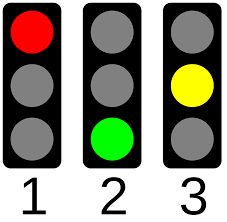 “Retirement isn’t what it used to be. For some, it’s something to look forward to after years in the workforce. But for others, there’s no such thing as slowing down,” writes Jean Chatzky in an interesting today.com piece headlined Retirement doesn’t have to be the end: How working longer benefits you. ‘‘Today, 47 percent of retirees say they either are working or plan to work in retirement, according to research from Merrill Lynch and Age Wave. And 72 percent of people in the 50+ range – i.e. future retirees – say they want to do exactly the same thing. Why is retirement no longer the end of work life for so many people? There are two broad reasons: finances and your overall health.”
“Retirement isn’t what it used to be. For some, it’s something to look forward to after years in the workforce. But for others, there’s no such thing as slowing down,” writes Jean Chatzky in an interesting today.com piece headlined Retirement doesn’t have to be the end: How working longer benefits you. ‘‘Today, 47 percent of retirees say they either are working or plan to work in retirement, according to research from Merrill Lynch and Age Wave. And 72 percent of people in the 50+ range – i.e. future retirees – say they want to do exactly the same thing. Why is retirement no longer the end of work life for so many people? There are two broad reasons: finances and your overall health.”
Other excerpts from the article: “Today, 70 (and beyond) is the new 50. Retirement is no longer a time to just garden and visit the grandkids. Today’s healthier retirees want to stay engaged, stimulated, involved. Work does that. But there’s no disputing that in retirement, finances can become a challenge. That was particularly true for people who retired right as the Great Recession ramped up. . . There are a number of health-related reasons to consider continuing to work.
“It keeps you alive
“Researchers at Oregon State University analyzed data from a large, ongoing study of people age 50 and up. What they found was that people who continued to work past 65 had an 11% lower chance of death from all causes.
“It keeps you healthier
“Researchers from the University of Miami studied more than 80,000 participants of the National Health Interview Survey, all of whom were at least 65 years old, and 13 percent of whom were still working. People in the work-force (particularly those with white-collar jobs) were significantly more likely to report their health was good, very good or excellent than those who were unemployed or retired.
“It keeps you mentally sharp
“And, interestingly, even people who thought they were doing it for the money, come around to realize that working improves their mental health. It keeps you connected to people, more current with technology, up to date on the news, and — generally — physically active.
“It gives you an identity
Work gives you a reason to get up in the morning. We all like to be able to say, here’s what I do — it gives you a sense of belonging to a unit greater than yourself.
“Of course, there are financial benefits as well.
“Your retirement account can continue to grow
“The more years you work, the fewer you have to pull money out of your retirement accounts to live on (although you do have to start 401(k) withdrawals by age 70 ½, waiting until you’re nearly there is a huge benefit over starting them as soon as you can at 59 ½). While in the account, the money can continue to grow tax free. If you’re lucky enough to have a traditional pension, working longer can also increase the size of those payments.
“You can delay taking Social Security
“We’ve discussed this before, but everyone should have a strategy that details the best time for them to start their benefits. In general, every year you don’t take your benefits between age 62 and age 70, those benefits grow by 8 percent annually.
“You may still receive company benefits
“Your employer’s health insurance may be cheaper than Medicare (if you’re old enough to qualify for it) or may provide broader coverage. If your company has fewer than 20 employees you have to sign up for Medicare at age 65, but if it has 20 or more you can stay on the company plan. Then, when you are ready to stop working, you can sign up without waiting for open enrollment. You may also still receive employer contributions to your 401(k) and employer provided group life insurance. “
